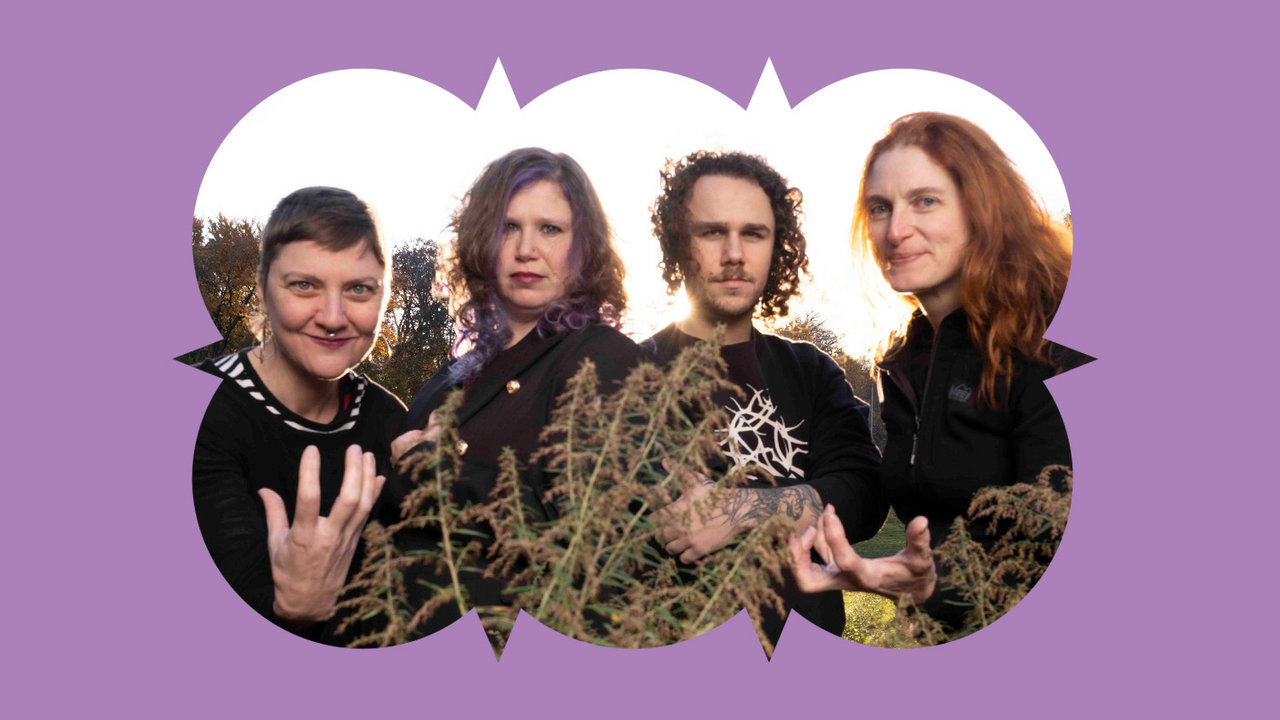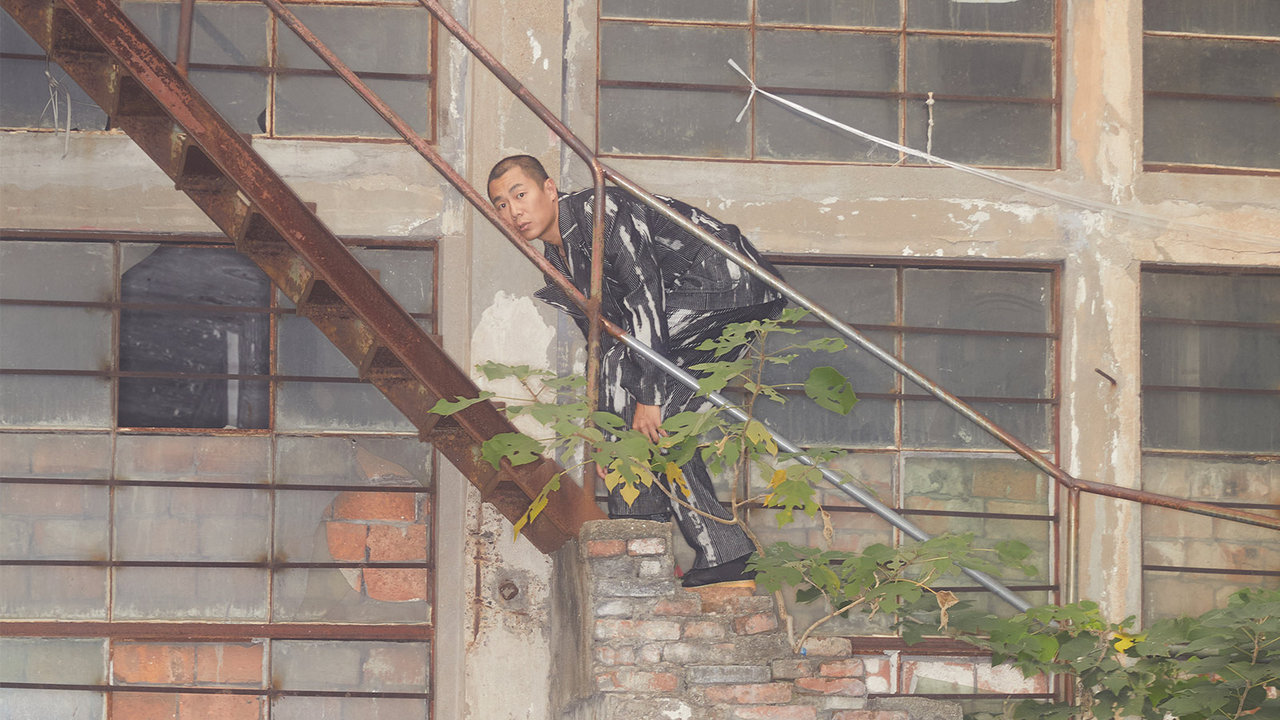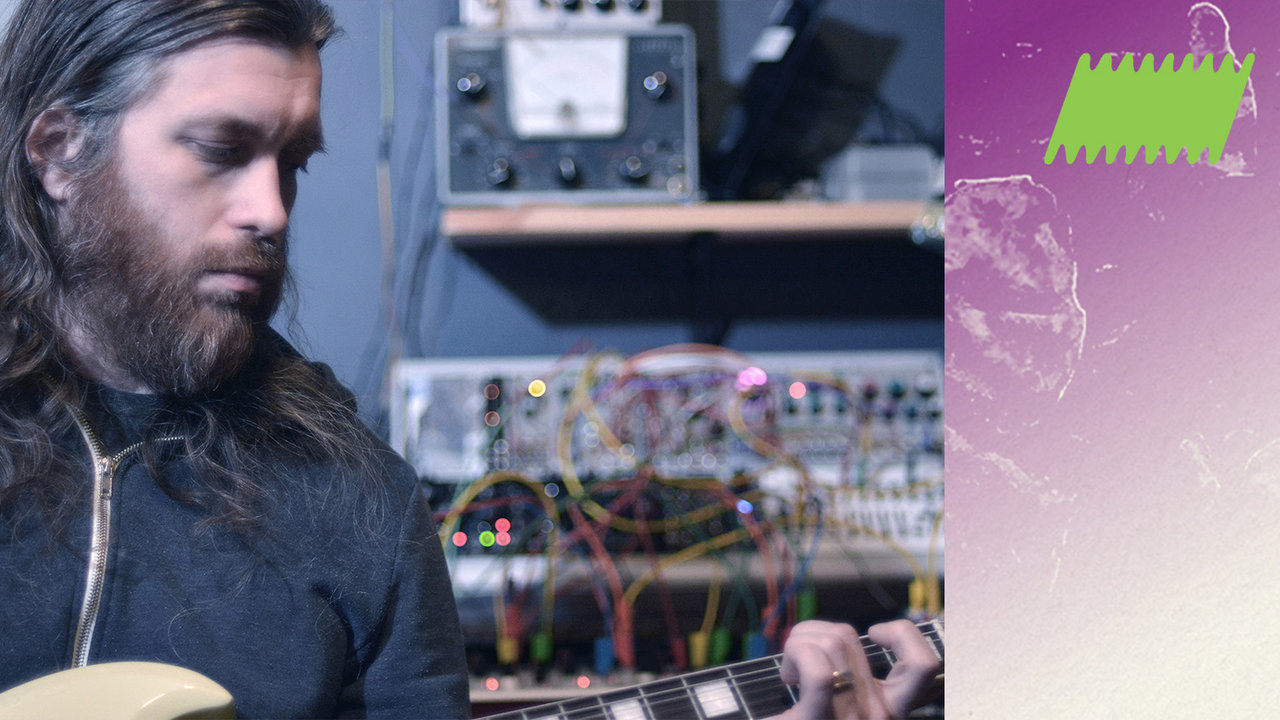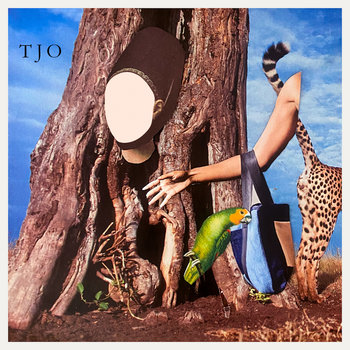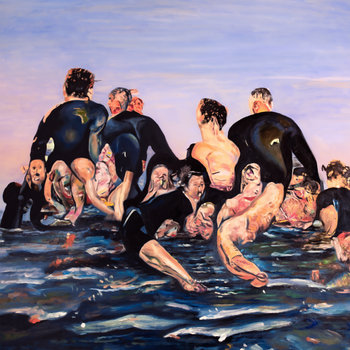
For Woto Wibowo, the founder of the Indonesia-based label Yes No Wave Music, stepping out of his comfort zone is a personal mission. Rather than concentrating the label’s releases on a few friends who share similar backgrounds, Wibowo, who goes by Wok the Rock, brings a wide array of artists into the fold. “Most underground artists here are informed by a leftist identity, a solidarity in terms of people and classes,” he says. “We don’t place value on the music alone, but also where the music is coming from, who makes the music, and who enjoys it.”
Perhaps the release thats most emblematic of the label’s mission is Asep Nayak’s Etai Wisisi Waga O Wamena Hanorasuok, a showcase of electronic wisisi music, a genre from the mountains of West Papua that has become the soundtrack of the entire island territiory. It’s a blazingly fast and high-pitched style of dance music that would sound perfectly at home in a set of Tanzanian singeli. The sound was born in 2009 when a then 13-year-old Nikolas Surabut began translating his local wisisi ritual music into digital form; the resulting music was embraced by Asep Nayak, two years his junior, and the pair began crafting a sound based on local instrumentation, rhythm, and melody, reinterpreted for a generation born into the Information Age.
Nayak’s mountain village doesn’t have electricity, but they do have internet access, owing to the fact that local utility companies seek out the highest place they can find when raising towers. To get there, Wok took a commercial flight to Papua’s capital and then jumped on another small plane to the village’s closest city. From there, they rode on a dirt bike for 90 minutes up muddy trails. “Their infrastructure there is terrible,” Wok says. “The Indonesian government isn’t doing any good for them, even though we get lots of natural resources from them.” West Papua, situated on the island of New Guinea, is the easternmost territory in the Indonesian archipelago, and is home to decades of fierce fighting. “One of the reasons I’m supporting and releasing wisisi music is because they’re marginalized and want to be independent,” Wok explains. “We want to bring it to other regions. The more people that like their music, the more confident they become.”
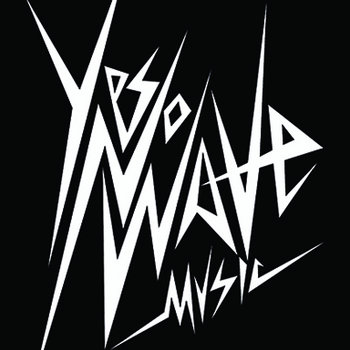

Yes No Wave also has deep roots in the Indonesian underground dance scene, which itself grew out of the local metal and punk scenes, both of which were mainly populated by middle-class art students. The first type of underground electronic music to make inroads into the country was industrial music in the mid-‘90s. But there was another homegrown style of house music that went mainstream around the same time. It was called funkot, and it was generally maligned by the underground community. “There was no overlap at all with funkot and the underground back then,” Wok recalls. “Metal and punk people hated funkot.” These days, the underground has matured in outlook, embracing modern local sounds like koplo, yet another grassroots variant of electronic music that’s widely popular among lower-income Indonesians. Wok has invited koplo artists to parties and festivals, and many underground artists are experimenting with hybrid sounds incorporating koplo and funkot. Wisisi fits perfectly into this conversation.
Indonesia is the fourth biggest country on the planet, spread across 17,000 islands, encompassing 700 ethnic groups and languages, and centuries of musical tradition. But the music industry is largely centered around the island of Java—something Wok wants to change. “The idea of decentralization is very big in Indonesia right now,” he says. “We want to break this one center into more points and more centers. And it would be nice to spread this idea to the world.”
Yes No Wave is still largely focused on Indonesian music, but the label has recently started exploring sounds from other Southeast Asian artists, largely as a result of the network Wok has built as curator at Nusasonic, a non-profit that works with musical cultures from Southeast Asia and organizes festivals in multiple countries. The different languages, religions, and colonial histories has been a difficult hurdle to overcome, but Wok credits the Nusasonic festivals for playing a role in bringing these disparate artists and scenes together. “When I’ve met people who listen to music from other cultures, they’re more open-minded as a result of it,” he says. “This is very important.”
Here are a few selections from Yes No Wave Music’s catalog.
Lynn Nandar Htoo
“Unlawful“
Myanmar’s Lynn Nandar Htoo‘s music is centered on tones designed to wrench passion from the soul: Hypnotic gong strikes lead into pounding kick drums, amplified by reverb-drenched warbles and screeching distortion. The outro track for the EP Jamadevi, “Unlawful” is the only song led by drums, and it stands out against the rest of the record’s ambient tones. It’s at once angsty and revelatory, capturing the maddening implosion of Htoo’s home country without speaking a single word.
Y-DRA
“Kidung Wahyu Kolosebo“
Clocking in at a full eight minutes, Y-DRA‘s “Kidung Wahyu Kolosebo” is a constantly evolving epic. The trip begins with ambient drones and soundscapes, featuring airy pads that bounce off fuzzy distortion, and mystic vocals that float in swirling patterns from singer Silir Pujiwati. The pace quickens and bass drums and hand drums introduce an element of urgency. Hypnotic rhythms lull the listener into a trancelike state until a series of stuttering kicks drop and the track breaks into a full-on run, while Pujiwati’s vocals get scraped with static. Arpeggiated synths with Eastern tuning flesh out an extended climax. The track is a remix of Sri Narendra Kalaseba’s song of the same name in honor of Ramadan, repurposed as a prayer of protection against Covid-19.
Pisitakun
Kongkraphan
Pisitakun makes his intentions clear from the jump: He wants everyone to know what’s happening in Thailand. Lead single “10/05/2010” begins with the sample of a British reporter refuting the local military’s insistence that local protestors were carrying guns when they were fired upon. That sample gives way to a recording of a distressed mother, demanding an explanation of why her son—a nurse—was shot and killed. Throbbing kicks march alongside arpeggiated gongs and distorted screeching, echoing the sound of barricades smashing against riot shields. Hope emerges near the album’s end via the sound of something resembling an electric phin—a traditional stringed instrument—playing a psychedelic molam melody. (Molam itself has a history of being used as protest music and state propaganda.) Although the events depicted in this track happened over a decade ago, the struggle for democracy in Thailand continues, and Pisitakun himself was forced to self-exile in Europe after participating in the anti-government protests of 2019. He continues to speak out, and each track on this album is named after a date with particular significance.
Asep Nayak
Etai Wisisi Waga O Wamena Hanorasuok
Electronic wisisi is light and nimble, with dexterous synths and skittering percussion, all of it modeled after traditional guitar melodies and grounded by a robust kick-snare pattern. Although distinct from any other local genre, it shares many of the same patterns and textures as other homegrown Southeast Asian electronic styles. “Wisisi is very popular now,” Wok explains. “Any ceremonies, they play it through smartphones. Graduation, birthdays, weddings. The traditional version of the music and dance is meant for rituals, but they’re not allowed to play the new version at them. It’s only played at modern ceremonies.”
Mother Bank
Tanggung Renteng
Tanggung Renteng features local West Javan women singing about their economic challenges and the turbulent recent changes to their village over psychedelic pop music. The project was organized alongside the artistic research group Badan Kajian Pertanahan, who launched an experimental mobile bank to help the community during the peak of the pandemic. All of the women featured on the album are members of the bank, and none of them are formal musicians. They sing about things like watching rice fields slowly turn into factories, young women flocking to become laborers, and laborers using wages to buy fast food—all of this in sharp contrast with the ideals of living sustainably off the land and their traditional ceramic craftwork. It is activist music in its clearest form.
rEmPiT g0dDe$$
PRIME ENERGY
The label’s most recent release is a great introduction to their mission statement. By taking different traditional instruments from across Southeast Asia and reimaging them in new contexts with cutting-edge technologies, Malaysian producer rEmPiT g0dDe$$ presents a vision of what the future of music could look like if it wasn’t so Western-centered. Her EP synthesizes the Malaysian wind instrument serunai and rebab strings, as well as Filipino Kulintang bronze gongs, uploading them for use on advanced club systems. This is not just an academic project—it could easily set dance floors off in cities across the globe.
Yennu Ariendra
Budi Pekerti (Original Score)
The soundtrack for the Indonesian film Andragogy takes a few different turns in accordance with the demands of the plot. But it’s heavily rooted in the local dance music koplo and its punchy synths, bouncy rhythms, and ecstatic vibes. Standout track “Symphonic No 40 Java Remix” basically what it sounds like—an amped-up koplo reimagining of the Western classical benchmark that’s representative of the style’s omnivorous remix tendencies. This is not the first score to incorporate koplo from Ariendra (whose producer alias is Y-DRA); he also worked directly with homegrown koplo producers for his score for Photocopier.

